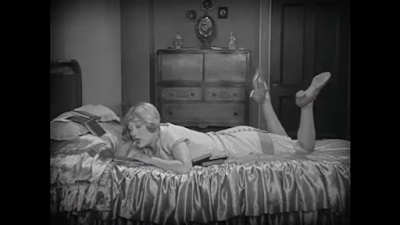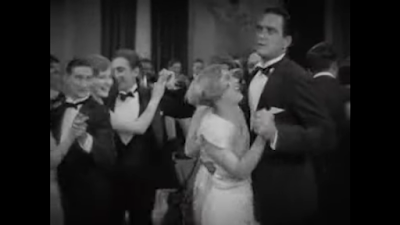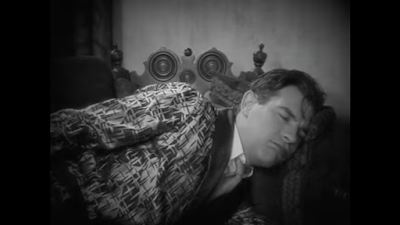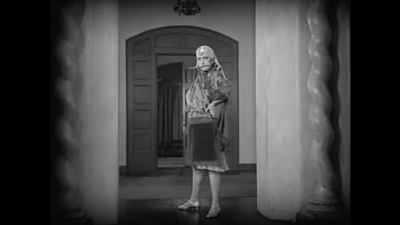Today is Elvis Presley's birthday! I am not a huge Elvis fan, but I am a fan of his work in 1958's King Creole. Shot in black and white in New Orleans (and Paramount, naturally), this film shows Elvis as a true actor. With Michael Curtiz directing and Hal B. Wallis producing you can't go wrong.
Elvis plays Danny, a high school student who just can't seem to graduate due to his "bad attitude". He tries hard but finds work more important than school due to the fact that his mom passed away and his dad can't seem to hold a job. Working at a night club, he finds himself helping Ronnie, played by Carolyn Jones. You might know her as Morticia from the original Addam's Family. Shes being pushed around and Danny steps in. Before they part she drops him off at school and demands a kiss.
Danny learns his dad got a job at the pharmacy. Later that night, Danny is working the club when he runs into Ronnie and learns she's the arm candy of big wig club owner Maxie Fields played splendidly by Walter Matthau. Maxie insists Danny sing for the club and he does, wowing the crowd. Rival club owner Charlie (Paul Stewart) hears Danny and offers him a job at his club, the King Creole. Danny accepts and is soon the hit of the town.
The opening act for Danny on his first night shows a cute number performed by French actress Liliane Montevecchi. She wears a banana costume very reminiscent of Josephine Baker and struts around with bananas hanging from her suit and palm tree props.
Wanting to make some extra cash, Danny meets the local scrappy gang who work for Maxie. They ask Danny to serenade the Five and Dime while they go in and steal. The plan works and Danny meets counter girl Nellie (played by Dolores Hart). She is as sweet as they come and has no problem telling Danny how she feels about him. She feels a lot.
Soon Danny finds him self seeing Nellie and Ronnie, and playing nightly at The King Creole. Maxie doesn't like the hype and forces Danny to work for him. In the mean time, Danny's dad is getting pushed around at work and the gang decides to mug the boss and steal his cash. Danny is in on the gig too, but things go wrong and Danny's dad is the one hurt.
Danny needs to get away. The pressure from Maxie is too heavy and Nellie wants to get more serious. He ends up Ronnie's beach house and they plan a future away from Maxie. Will their plan work? What about Nellie? You'll have to watch to see what happens next.
The soundtrack to this film is great, with Elvis singing many numbers like "New Orleans", "Dixieland Rock", and "Hard-Headed Woman" along with an opening song, "Crawfish" sung with Kitty White that starts the movie out strong. Some thought he would be nominated for an Oscar for his roll but that didn't pan out. Ten days after the film wrapped, Elvis entered the army and started basic training. Nellie played by Dolores Hart left Hollywood several years after this film was made and became a nun, and is the Reverend Mother at a Monastery in Connecticut. In a documentary about her life, she was asked why she left her acting career of 16 years for the church. She responded, "God is bigger than Elvis".

James Dean was supposed to snag this role but Hal B. Wallis wanted Elvis for his musical abilities. Elvis's manager, the Colonel Tom Parker, was very against him playing Danny, but eventually he got the role. Elvis was known to spend more time with the crew and extras hanging out an playing music than sitting in his dressing room. Walter Mathau was the "veteran" actor on set and was told by Michael Curtiz that he was a high priced actor but to act like a low priced actor. Elvis asked him for advice on the set which Walter obliged. Filming proved to be tricky with rain delays and the daily mob that formed outside the Roosevelt Hotel where Elvis and others were staying. Shooting proved difficult too to due to the large onlooking crowds. Elvis was document as saying this was the favorite of all his films.










































.jpeg)








